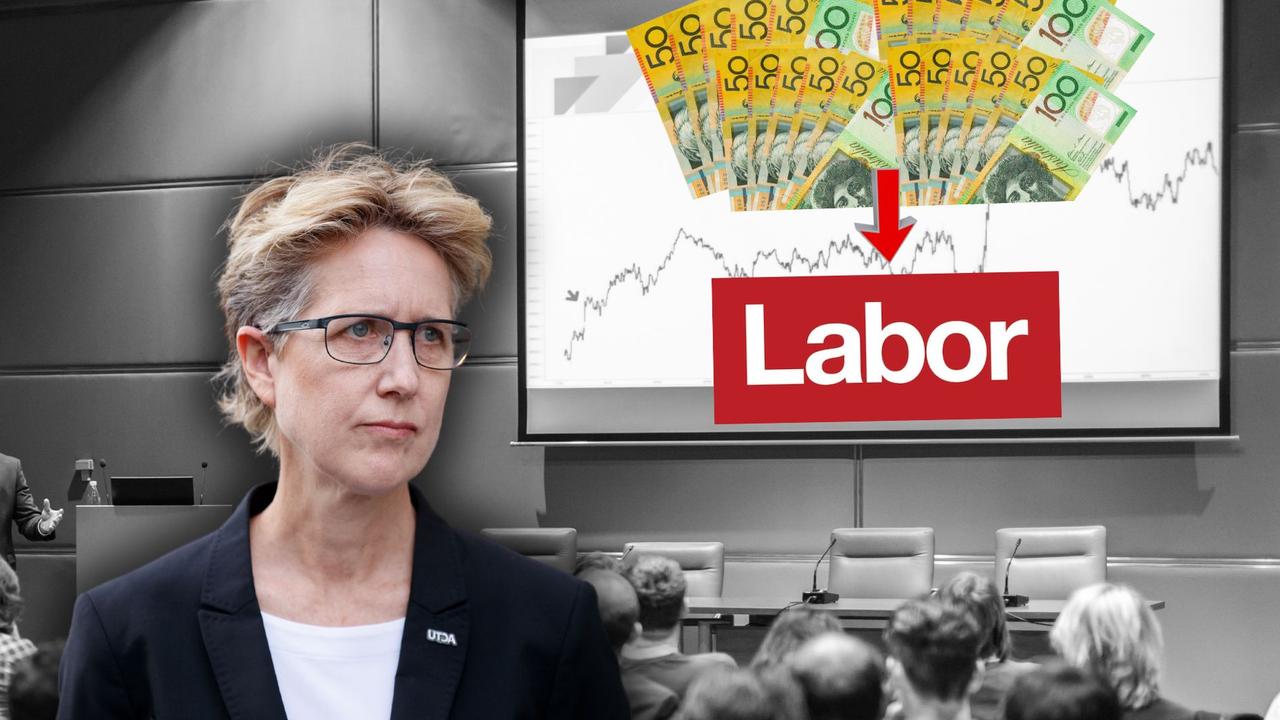Billabong founder Gordon Merchant loses bulk of latest appeal in $50m tax office stoush
Billabong founder Gordon Merchant has lost the bulk of his latest appeal against a $50m tax bill in a civil case that’s exposed roiling tensions at the top of the surfwear company in the years before its spectacular wipeout.

Business
Don't miss out on the headlines from Business. Followed categories will be added to My News.
Billabong founder Gordon Merchant has lost the bulk of his latest appeal against a $50m tax bill in a civil case that’s exposed roiling tensions at the top of the surfwear company in the years before its spectacular wipeout.
The Gold Coast surfer appealed a decision from May last year which found he’d purposely sold a swag of Billabong shares at a loss in order to avoid tax.
The earlier judgment also found he had used “dividend stripping” to avoid paying tax on share profits when two of his companies forgave debts owed to them by a third company.
His appeal against one of the accusations of dividend stripping was upheld in the latest judgment, published this week.
Documents lodged in the case lay bare the disdain Mr Merchant held for managers of the beloved surf brand, founded with wife Rina in his Burleigh kitchen in 1973.
It traded on the ASX as high at $18.81, but had ebbed to $1.05 per share by the time it was peeled off to US surfwear giant Boardriders in 2018. Boardriders itself filed for bankruptcy in February this year.

The court records reveal Mr Merchant’s troubles stem back to 2005 when, via his group of companies, he bought 14 per cent of shares in bioplastics start-up Plantic, after selling $200m worth of Billabong shares.
The company was unprofitable, but five years later Mr Merchant’s companies bought the remainder of its shares – taking his total Plantic outlay to around $24m.
By January 2011, Merchant Group companies were shelling out loans of more than $1m a month to keep Plantic afloat, forcing him to sell properties in Hawaii to cover the relentless outflow.
By 2015, Merchant companies had loaned Plantic more than $55m and he wanted out – taking up a purchase offer by a company named Kuraray.
Kuraray paid $59.8m cash for all Plantic’s shares, in a deal which also saw the Merchant Group forgive the tsunami of debts.
The agreement included other adjustments and payments which added up to an $85m capital gain for the Merchant Group.
But it was the transfer of Billabong shares between two Merchant companies the previous year – which crystallised a $57m capital loss – that sparked the ire of the tax office.
In court, the commissioner claimed the main purpose of the transfer was to create a tax loss, which could eventually be used to offset any gain made on a Plantic sell-off – a claim Mr Merchant’s team unsuccessfully contested.

Through his companies, Mr Merchant had been buying back into Billabong for years – even as profits and share value dived and after its dividends dried up in 2012.
According to the court documents: “he had always believed in the Billabong brand”.
“Mr Merchant believed that BBG’s poor financial results were due to mismanagement by key staff,” this week’s judgment said.
“He wanted to retain a controlling stake in the company to prevent mismanagement in the future.”
The documents show tensions at Billabong were present before its public listing in 2000, with Mr Merchant at strategic odds with major shareholders the Perrin brothers, who had bought in the previous year.
The judgment revealed, Mr Merchant was “reprimanded” in 2006 by then Billabong chairman Ted Kunkel.
The chairman “was not happy that he had not told him he intended to sell the shares before he did so”, the judgment said, a sitiation inflamed by similar actions by former CEO Matthew Perrin a few years earlier.
Mr Perrin stood down as CEO “because of these events”, the judgment said, and in light of this, Mr Merchant was “cautious from that time about BBG management and board members”.

Final orders are yet to be made in the latest Federal Court matter, with Judges John Logan, Shaun McElwaine and Lisa Hespe, seeking proposed orders from the parties within 14 days.
The finalisation of the case may reinvigorate a Queensland Supreme Court matter, in which Mr Merchant is taking on accounting company Ernst & Young (EY) in 2020, claiming his tax office troubles stemmed from the firm’s advice over the Plantic and Billabong deals.
In that case, which was stayed late last year pending Federal Court results, Mr Merchant was seeking damages from EY and its former partner Ian Burgess.
Mr Merchant, via his legal team, has been contacted for comment.
More Coverage
Originally published as Billabong founder Gordon Merchant loses bulk of latest appeal in $50m tax office stoush




